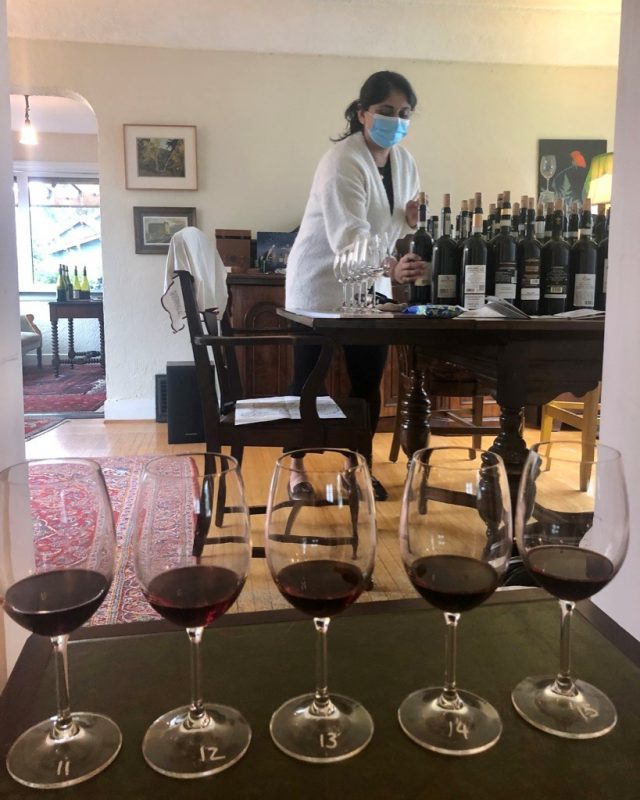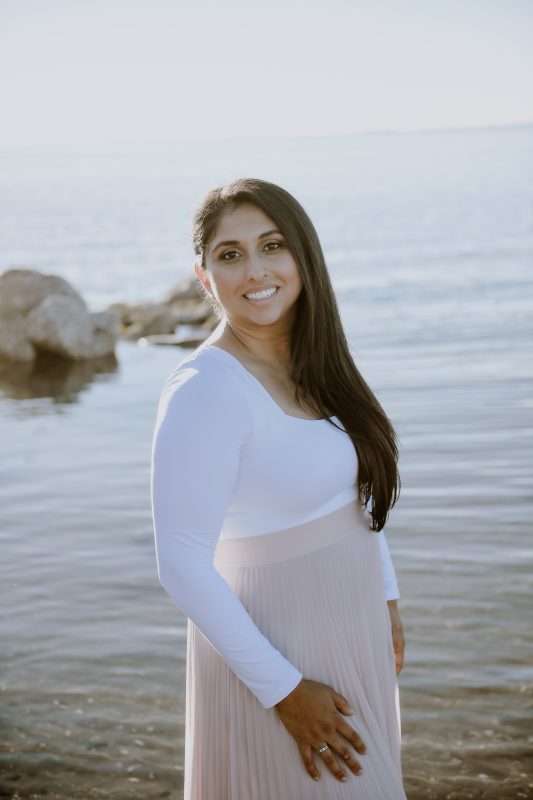by Sonal Singh; feature photo by Lincoln Clarkes
Education has always been a cornerstone in my family. It is what brought my parents to the United States and why I moved to Canada. No amount of education is too little or insignificant. How you make that education work for you is what that makes it valuable. So, that is exactly what I set out to do. Despite having a variety of degrees, certificates and diplomas under my belt, I believed that Vinica’s AgriDiversity program would be a significant addition to my credentials.
I learned about Vinica while mindlessly scrolling through Instagram stories one night. A friend shared the program as an entry into the wine industry for British Columbians who identify as Black, Indigenous and people of colour (BIPOC). As it turns out, Vinica offers an intense immersion by providing Wine and Spirit Education Trust (WSET) Levels 2 & 3, along with thoughtfully curated internship placements based on individual interests, and career development.
I applied instantly. My studies at culinary school included WSET Level 1 where I had seen the power of crafting food and wine pairings. Naturally, Levels 2 & 3 would elevate my credibility in giving recommendations and creating experiences. It was only after I had been accepted that I told my husband I had applied. I was confident this program would open many doors allowing me to explore various topics in food and wine to share on my blog, Dear Girls, Love Mom.
The 9-week program was split between home study, our internship, and classroom time in Kelowna. Besides WSET lectures, some classroom hours were allocated for professional development and resume building seminars so students could apply to positions currently available in the industry. Vinica also tied local wine industry training into the program. Our group was the first to receive the BC Wine Ambassadors course – an educational lecture on BC wine history, evolution and the multiple Geographical Indications (GI’s) of BC. Days were filled with personal growth, note taking, exploring grape growing regions, and wine tasting.
The wine tastings were one of the things I looked forward to the most, but equally found intimidating because of how complex it can be. It wasn’t long before we were absorbed in dissecting wine using WSET’s Systematic Approach to Tasting (SAT). This system gave me structure to mentally break down wine using my senses and allowed me to explore how dynamic a grape can be. While the SAT is crucial in passing the course and assessing wine, my internship taught me that communicating about wine goes beyond this.

My internship was a great steppingstone into the wine industry as a writer. I spent a week with Michaela Morris, a writer for Quench Magazine and other international publications such as Decanter Magazine and Meininger’s Wine Business. While assisting her in tasting close to 150 Brunello di Montalcino and Chianti Classico, I quickly realized that describing wine can be far more poetic than the structure taught by the SAT. Don’t get me wrong – a large part of the ability to break down wine with such romance comes from being able to mentally walk through the process taught in WSET.

Bridging the course to industry application is where Vinica’s magic began to happen. I was able to navigate conversations with other industry professionals with confidence and the more I did it, the more comfortable I was. One of the most memorable experiences of my internship was sitting in on interviews with winemakers in Italy. Being able to follow the conversation as they discussed terroir, vineyard management and harvesting methods – and how all of this was displayed in the vintage – was incredible.
The biggest surprise in the program was the safe space created to have discussions about diversity. I thought the extent of diversity would be limited to having a classroom full of young BIPOC professionals – that has usually been the case when most things are tag lined ‘diverse’. Boy was I wrong! A couple of mornings were allocated for deep and vulnerable conversations about BIPOC experiences and their impact. The sessions delivered a heavy dose of self-awareness as a member of the BIPOC community. They also provided encouragement, tools, and resources to help create a network of individuals who want to make the wine industry inclusive.
Vinica’s AgriDiveristy program far exceeded my expectations. The time and energy spent by the board members to create a fully immersive experience could only be done with passion and dedication to making a difference in an industry that needs shaking up.
